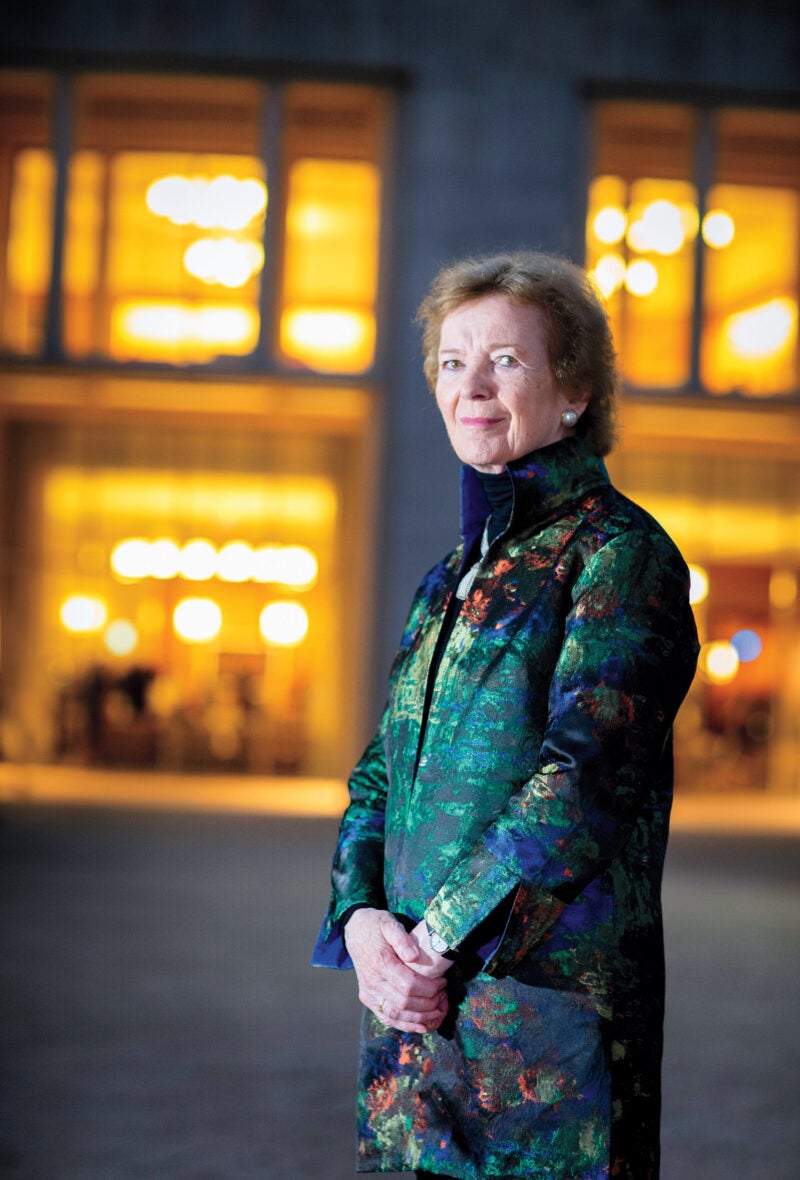President of Ireland from 1990 to 1997 and the United Nations high commissioner for human rights from 1997 to 2002, Mary Robinson LL.M. ’68 now leads the Mary Robinson Foundation—Climate Justice. She’s the author of “Climate Justice: Hope, Resilience, and the Fight for a Sustainable Future,” published in the U.S. in September, and co-producer of Mothers of Invention, a podcast that advocates a feminist approach to fighting climate change.
On the culture shock of coming from Ireland to HLS:
It was very competitive. Law school in Ireland taught us well, but the Socratic method made you think more. I found it very exciting.
Who at HLS influenced her most:
My lecturers in the LL.M. program: Archibald Cox on labor law and [Paul] Freund on constitutional law. Henry Steiner in European community law and European competition law encouraged me when I went back to Dublin to take a teaching opportunity. I became a professor of constitutional and criminal law at Trinity College Dublin.
Because I was a graduate of HLS, I stood for Parliament (in Ireland) at 25. I wouldn’t have done that if I hadn’t been imbued with the atmosphere at Harvard Law.
Mary Robinson LL.M. ’68
HLS’s imprint on her:
I was very influenced by the atmosphere that year, 1967-’68. Many of my American peers were criticizing what they called an immoral war in Vietnam. And there was a lot of discussion of civil rights and poverty. Martin Luther King was assassinated in April—that was awful for us.
What I took from Harvard was the fact that young people were taking responsibility and making a difference. [In Ireland,] maybe in your late 40s you got a chance. But because I was a graduate of HLS, I stood for Parliament at 25. I wouldn’t have done that if I hadn’t been imbued with the atmosphere at Harvard Law. It helped me, all along the way, to have courage—as Irish president, to do it more confidently as a woman.
How Ireland has changed since 1968:
Our laws opened up over the years. I was fighting hard as president, in the Senate, and as a lawyer, to help that change. More recently, we had two referendums on same-sex marriage and removing the prohibition on abortion. Both votes passed with enormous support from young Irish people.
Why women should lead in fighting climate change:
It’s an existential threat for our children and grandchildren—or, if we don’t have children, our nieces and nephews. With climate change now, women disproportionately suffer, whether from Katrina or in Puerto Rico.
Climate change is man-made, but of course, man-made includes women, and feminist includes men. We need a solution based on equality and progressive policies which take on broad gender and human rights dimensions.
Explore Q&As with other HLS alumnae who are leading a movement »
